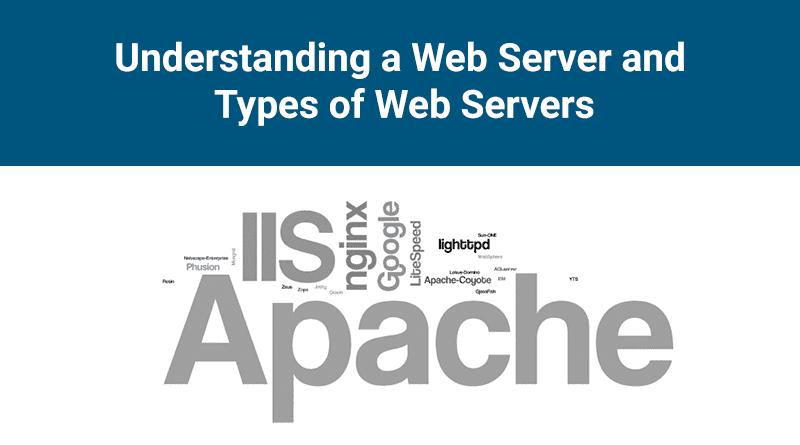A web server is a network service that serves content to a client over the web. This typically means web pages, but any other documents can be served as well. Web servers are also known as HTTP servers, as they use the hypertext transport protocol (HTTP). The Apache HTTP Server, httpd, is an open source web server developed by the Apache Software Foundation. A virtual host is a fancy name for a website that's served by Apache. You can have numerous virtual hosts served up on a single Apache server. In fact, you are only limited to the power of your. Here abc.com and xyz.com both sites points to the same Apache web server which has got the ip address of 192.168.100.1. In this scenario we need to have two virtual hosts, one for xyz.com and one for abc.com. The VirtualHost block can appear multiple times, in one or more files on a server. In the preceding configuration file, Apache accepts public traffic on port 80. The domain www.example.com is being served, and the.example.com alias resolves to the same website. For more information, see Name-based virtual host support.
The Apache HTTP Server Project is an effort to develop and maintain anopen-source HTTP server for modern operating systems including UNIX andWindows. The goal of this project is to provide a secure, efficient andextensible server that provides HTTP services in sync with the current HTTPstandards.
The Apache HTTP Server ('httpd') was launched in 1995 and it has been the most popular web server on the Internet sinceApril 1996. It has celebrated its 25th birthday as a project in February 2020.
Host Apache Web Server Windows
The Apache HTTP Server is a project of The Apache SoftwareFoundation.
The Apache Software Foundation and the Apache HTTP Server Project arepleased toannounce therelease of version 2.4.46 of the Apache HTTP Server ('httpd').
This latest release from the 2.4.x stable branch represents the best availableversion of Apache HTTP Server.
Apache HTTP Server version 2.4.43 or newer is required in order to operate a TLS 1.3 web server with OpenSSL 1.1.1.
Download | ChangeLog for2.4.46 | Complete ChangeLog for2.4 | New Features in httpd2.4

As previously announced, the Apache HTTP Server Project has discontinuedall development and patch review of the 2.2.x series of releases.
The Apache HTTP Server Project had long committed to provide maintenancereleases of the 2.2.x flavor through June of 2017. The final release 2.2.34was published in July 2017, and no further evaluation of bug reports orsecurity risks will be considered or published for 2.2.x releases.
Great! We have updated our download page in an effort tobetter utilize our mirrors. We hope that by making it easier to use our mirrors, we will be able to provide a better download experience.
Please ensure that you verify your downloads usingPGP or MD5 signatures.
Awesome! Have a look at our current 'Help Wanted' listings then:
Running several name-based web sites on a single IP address.
Your server has multiple hostnames that resolve to a single address, and you want to respond differently for www.example.com and www.example.org.
Note
Creating virtual host configurations on your Apache server does not magically cause DNS entries to be created for those host names. You must have the names in DNS, resolving to your IP address, or nobody else will be able to see your web site. You can put entries in your hosts file for local testing, but that will work only from the machine with those hosts entries.
The asterisks match all addresses, so the main server serves no requests. Due to the fact that the virtual host with ServerName www.example.com is first in the configuration file, it has the highest priority and can be seen as the default or primary server. That means that if a request is received that does not match one of the specified ServerName directives, it will be served by this first <VirtualHost>.
The above configuration is what you will want to use in almost all name-based virtual hosting situations. The only thing that this configuration will not work for, in fact, is when you are serving different content based on differing IP addresses or ports.
Note
Apache Website
You may replace * with a specific IP address on the system. Such virtual hosts will only be used for HTTP requests received on connection to the specified IP address.
Apache Web Server History
However, it is additionally useful to use * on systems where the IP address is not predictable - for example if you have a dynamic IP address with your ISP, and you are using some variety of dynamic DNS solution. Since * matches any IP address, this configuration would work without changes whenever your IP address changes.
